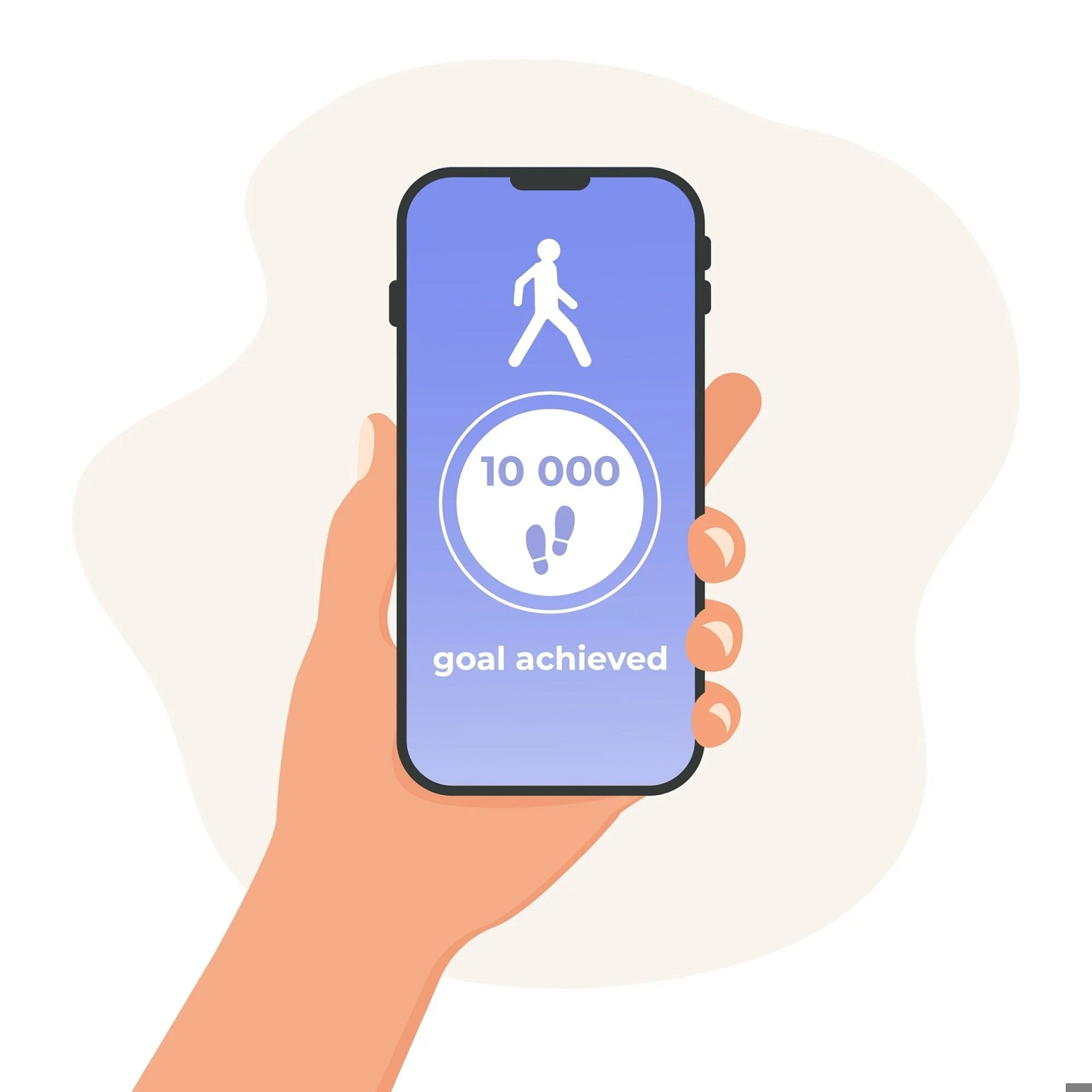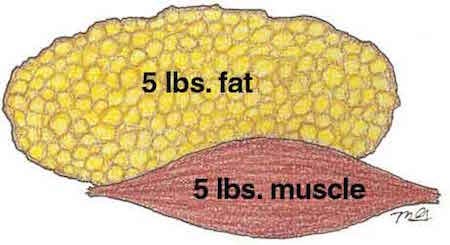10,000 Steps a Day
The Subconscious Fat of It
Today, the modern golden rule of fitness is walking 10,000 steps daily.
“Ten thousand steps a day is pretty much mandatory,” Mr. Skeptical insists, crossing his arms. “It’s the minimum anyone should be doing. Sitting around all day just isn’t healthy.”
I roll my eyes. “Says who?”
“Everyone says so! Doctors, fitness experts, health apps…” Mr. Skeptical gestures at his smartwatch, which conveniently flashes his step count. “Look, I’m already at 9,200 for the day!”
“You’re a hero,” I say, barely holding back a smirk. “But have you ever wondered why it’s 10,000? It’s not exactly grounded in science.”
Mr. Skeptical tilts his head and raises an eyebrow, genuinely intrigued and irritated at the same time. “Do you always have to ruin everything?”
Subconscious Fat at 30,000 Feet
I lean back, taking a deep breath. “This whole 10,000-step thing started in Japan in the 1960s. A Japanese company called Yamasa created the first commercial pedometer, which they called the ‘Manpo-kei.’ In Japanese, that means ‘10,000-step meter.’ It was a catchy slogan, easy to market. Ten thousand is a nice round number, so it stuck.”
Mr. Skeptical’s face scrunches in disbelief. “That’s it? Just a marketing ploy?”
“Pretty much,” I say. “There wasn’t any research backing it up then, and yet now we’ve got people glued to their fitness trackers, desperate to hit a number invented decades ago by a marketing team. Doesn’t it seem a bit arbitrary?”
“Arbitrary or not,” Mr. Skeptical says, “it’s still a healthy goal. More movement has to be better for you. It lowers blood pressure, boosts cardiovascular health, and even helps mental well-being.”
I nod, but only slightly. “Movement is good for you, sure. But not everyone needs to hit 10,000. Studies show that around 7,500 steps per day can offer many of the same health benefits, especially in older adults. After that, the returns start to diminish.”
“Okay, but what about burning calories?” Mr. Skeptical counters, now leaning forward, clearly in debate mode. “Isn’t it better for weight management to keep moving?”
“If a person needs to lose a lot of weight (30lbs or more), then yes. But if they want to gain muscle, then no. Why worry about a made-up number when you can get a cardio-respiratory workout while resistance training.”
“I’m not convinced lifting weights gives you a cardio workout.”
“It does if you go to complete muscle failure. If you get to that point where you can barely move the weight or, even better, the resistance band.”
Subconscious Fat at 10,000 Feet
“So, are you saying step counting is pointless?” Mr. Skeptical narrows his eyes. “Because it sure sounds like you’re just trying to justify doing less.”
“We must go back to first principles to understand this. One of the main concepts I learned in chiropractic school was that every living thing has an innate intelligence. This intelligence heals and self-regulates the body and adapts it to the environment.”
“I want to remind our readers that you are no longer a chiropractor.”
I give Mr. Skeptical a dirty look. “I’m not. How I went from being a chiropractor to a fitness trainer can be found here.”
Mr. Skeptical chuckles. “You went through the school of hard knocks.”
After another dirty look, I ignore him. “Anyway, for many men over 40, if you want to lose less than 30lbs of weight, doing exercises like jogging, biking, and even lots of walking, the body will adapt to go further for longer. This means eating away muscle because it’s more dense than fat.”
“Muscle weighs more than fat?”
“Muscle is not heavier than fat; that’s a common myth. But muscle is more dense.”
Mr. Skeptical pouts his lips and squints. “But why would the body want to eliminate muscle if you walk too much?”
Subconscious Fat at Eye-Level
Imagine yourself as a human engineer. This is, in essence, what your innate intelligence is. If you want to build or create a human to walk long distances, you want to minimize muscle. A lot of muscle is found on the skeleton’s surface, such as in the arms and legs. That is simply extra weight to push for walking or jogging—no need.
However, since you want to go further, you can store fat in and around the organs (which is terrible for your health). Yet, it’s good to have an extra fuel source (fat) to keep you going, and fat is soft and can fit in between your organs closer to the center of your body, making you more efficient to go further for extended periods.
And this is why marathoners are skinny or skinny-fat, and sprinters have more muscle. See my post on that here.
Mr. Skeptical adds, “So the benefits of doing 10,000 steps a day have drawbacks?”
“Yes, add to that that people can get stressed if they don’t hit their mark of 10,000 steps. The innate intelligence produces cortisol, which is known as the stress hormone. And what do you think the stress hormone does?”
Mr. Skeptical shrugs his shoulders. “I don’t know. It makes you feel stressed.”
“Yes. From an evolutionary survival perspective, that means more fat storage. If the body gets stressed, more fat gets stored.”
Practical Suggestions and Conclusions
Mr. Skeptical gets up, thrusting his arm in the air, showing me his smartwatch. “I enjoy counting my steps. It makes me feel good like I’m accomplishing something.”
“Good, then keep doing it.”
“You really know how to take the tequila out of the party. You’re ruining my walk high!”
“Well, I’m Hermann Diehl, the real deal. I must say what’s real, even when it’s inconvenient.”
With that Mr. Skeptical ignores my comment and walks out.
And he has a point. Many people get a sense of accomplishment by tracking their daily steps. It’s similar to how I enjoy documenting my workouts and daily protein intake. But if you’re a man over 40 and want to lose less than 30lbs, I’d say there are other things you can track besides steps that might serve you better.
The point is that tracking and keeping scores can be fun and can help one reach specific goals. But it’s essential to know if those goals are worth achieving.
Be aware.
PS Links on Facebook and Instagram. Chat GPT was used to research and enhance this post.
PSS Online event: Carnivore Q & A next Wednesday, Nov 20, at 8 PM



